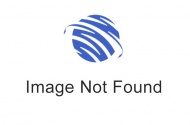The permissioned blockchain produced by a collaboration of blockchain eco-system VeChain with the Limassol-based IT solutions provider I-DANTE offers automated solutions to both of these issues.
A public permissioned blockchain controls both access to the platform and limits the ability of users to certain roles. For example, anyone can access the public ledger that controls all transactions for Bitcoin, and buy and sell the coins. Anyone (even without purchasing a bitcoin) can see all the transactions on the public ledger.
This is not possible with a permissioned blockchain. But this more secure blockchain does offer the rapid automation for the exchange of data that all such platforms have. And it enables compliance with all medical data regulations.
What’s more, the blockchain permits the hospital to collect data on the efficiency of its processes. How long does it take for a patient to register at the emergency room, undergo the initial examination, and then actually see a doctor? Each of these events is recorded on the blockchain for later review.
This is why the global healthcare market spending and investment on blockchain-based technologies is expected to hit $5.61 billion by 2025, according to a report by BIS Research.
The collaboration has produced two solutions for the Mediterranean Hospital of Cyprus: The E-NewHealthLife patient passport and E-HCert, an electronic lab test e-wallet.
The blockchain-enabled medical data management platform named E-NewHealthLife has been implemented in the Emergency Department of the hospital as the first phase of this project.
The platform produces a Digital Healthcare Passport, an encrypted NFC Card that can be assigned to any patient of the hospital. The NFC Cards will allow the patients to identify themselves automatically at the Emergency Room registration desk, check their queue on mobile phone, manage their own medical records safely with the E-NewHealthLife Web App, and share their data securely with the hospital.
But data from the Digital Healthcare Passport can only be shared with the permission of the patient. The app allows the patient to
The E-HCert app offers the secure delivery of patient information. It enables patients to store their medical data, and, with their permission, share it as needed.
When a patient undergoes testing for COVID-19, the test results are automatically uploaded onto the blockchain and then to the E-HCert app (if the patient has previously given permission).
The patient may now decide if and when to share the test results. But the display of results on the E-HCert app may be used, for example, when returning to Cyprus from abroad, to avoid quarantine. Or when the patient returns to the workplace, or to obtain authorisations for other types of activity which require proof of testing.
More than 1,200 people have downloaded the E-HCert App at the Larnaca airport and have asked to receive their novel coronavirus test results on it, as of this writing, as Dimitrios Neocleous, ecosystem manager at VeChain Tech in Cyprus, told the Cyprus Mail.
The Mediterranean Hospital of Cyprus performs these tests at the airport at a cost of €60.
In the future, E-HCert will be adapted to display results from all types of medical testing, Neocleous adds.
Source: Cyprus Mail













